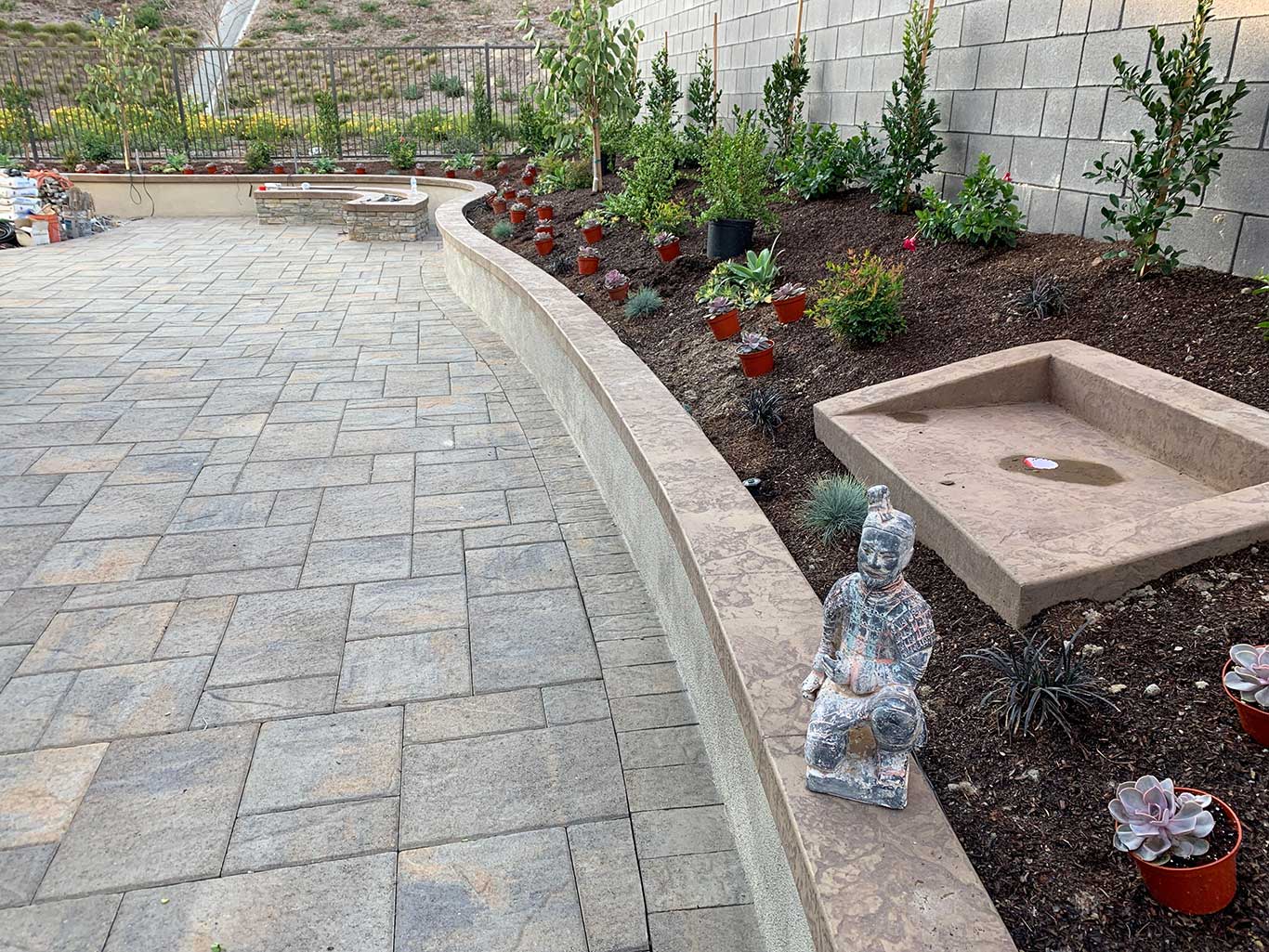
Key Takeaways:
When it comes to paving driveways, walkways, or patios, homeowners in Orange County are faced with two primary options: interlocking pavers and regular pavers. Both options provide durability and beauty, but how do you choose the right one for your project?
Understanding the key differences between these two types of pavers will help you make an informed decision. Whether you want a sleek, modern look or a traditional feel, knowing how they compare will ensure your investment lasts.
Interlocking pavers in Orange County are designed to lock into each other, creating a stable surface that can absorb pressure and resist shifting. These pavers are built with specific grooves and patterns that allow them to interlock tightly, making them an ideal choice for areas that experience heavy traffic or the need for movement, like driveways and walkways.
Their tight-fitting design allows for better load distribution, which helps prevent cracks, shifting, or uneven surfaces. This feature makes them highly desirable for areas in Orange County that may be subject to soil movement, like sloped yards or coastal areas with shifting sands.
Our interlocking pavers guide explains in more detail how these pavers work and how they can improve your outdoor spaces.
Regular pavers, on the other hand, are designed to sit on a compacted base without interlocking. These pavers are generally flat, and while they still provide a durable surface, they do not have the same structural integrity as interlocking pavers. Regular pavers rely more on the base layer for stability and often require additional edging or restraint systems to keep them in place.
While they are often more affordable upfront, regular pavers can be more prone to shifting over time, especially if the base layer is not adequately prepared or the area experiences heavy wear and tear.
Interlocking pavers are known for their superior strength and durability. Their interlocking design makes them more resistant to the effects of shifting soil and extreme weather conditions. This makes them an excellent choice for Orange County retaining walls, driveways, and patios that need to withstand heavy traffic or weight.
One of the standout features of interlocking pavers is their ability to flex. Unlike regular pavers, which may crack if the ground shifts, interlocking pavers can move with the ground, absorbing stress and strain. This flexibility is particularly important in Orange County, where properties may be built on slightly uneven ground or in areas prone to mild soil shifting.
Because interlocking pavers can be removed and replaced individually, maintenance is straightforward. If a paver becomes damaged, it can be replaced without needing to disrupt the entire surface. This makes them easier to maintain than regular pavers, which may require larger patches if one paver shifts or breaks.
Interlocking pavers come in a variety of colors, sizes, and shapes, allowing for a wide range of design possibilities. Whether you prefer a contemporary design or a more traditional look, interlocking pavers can be arranged to fit your aesthetic preferences.
One of the main advantages of regular pavers is their lower upfront cost. They are generally less expensive than interlocking pavers, which can make them a more budget-friendly option for homeowners looking to save on installation costs.
For homeowners who prefer a more traditional or rustic look, regular pavers are a great option. Their simple, uniform design works well in a variety of settings, from garden paths to patios. Regular pavers offer a classic style that complements both modern and classic landscaping designs.
Regular pavers are often quicker and easier to install than interlocking pavers. Because they do not require the precise interlocking design, installation is simpler and can be completed in less time. For smaller projects or DIY installations, regular pavers can be a more accessible choice.
When comparing the cost of interlocking pavers in Orange County to regular pavers, it's clear that interlocking pavers are more expensive upfront. However, considering the durability and reduced maintenance over time, the long-term cost of interlocking pavers often outweighs the initial investment.
On average, regular pavers cost between $2 and $6 per square foot, while interlocking pavers range from $6 to $10 per square foot. While interlocking pavers have a higher installation cost, their longevity and reduced need for repairs often make them a more cost-effective choice in the long run.
Our premium paver guide explains how choosing quality pavers can significantly increase your property’s value and curb appeal.
When selecting the right pavers for your project, consider these factors:
For a detailed comparison of different materials, including natural stone or concrete pavers, we have an informative guide to help you make the best decision for your outdoor space.
Whether you choose regular or interlocking pavers, professional installation is crucial to ensure the longevity of your project. Incorrectly prepared bases, poor installation techniques, or inadequate drainage can all lead to shifting, cracking, or uneven surfaces over time.
Experienced driveway installers in in Orange County can ensure that your paver installation is done correctly, maximizing the lifespan and appearance of your new surface.
When it comes to Orange County stamped concrete and paver projects, Signature Landscape brings over 38 years of expertise to every job. From choosing the right material to expert paver installation, our team creates beautiful, durable outdoor spaces.
Ready to start your paver installation project? Contact us today to request a free quote and see how we can bring your vision to life with quality pavers that stand the test of time.
 Signature Landscape
Signature LandscapeSchedule A Consultation